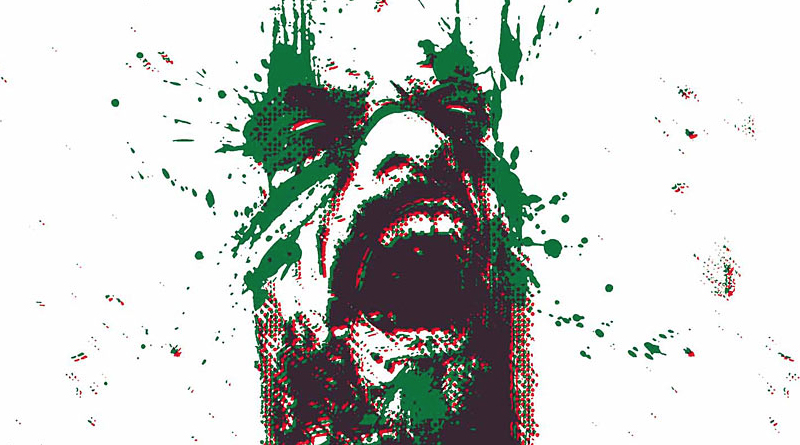
Karnak #6
Writer:
Warren Ellis
Artist(s):
Roland Boschi
Colorist:
Dan Brown
Letterer: VC’s Clayton Cowles
Cover: David Aja
Publisher: Marvel Comics
A review by Nico Sprezzatura.
 Modern relaunches are a double-edged sword. For every comic that rises to the top of an All-New, All-Different Marvel NOW! Rebirth 52 initiative, there are loads of other comics that are simply doomed to fail for myriad reasons — and unfortunately, Karnak was one such example.
Modern relaunches are a double-edged sword. For every comic that rises to the top of an All-New, All-Different Marvel NOW! Rebirth 52 initiative, there are loads of other comics that are simply doomed to fail for myriad reasons — and unfortunately, Karnak was one such example.
Written by the prolific (sometimes inaccessible) Warren Ellis, Karnak features a fairly obscure character at its center. Though a member of the royal Inhuman family, Karnak isn’t nearly as ubiquitous to the Marvel Universe like some of his cousins are; he doesn’t have the cult following of a Black Bolt, or a Medusa.
That’s a shame, because he’s a pretty interesting character. Give or take a few details, he’s comparable to DC’s Midnighter, in the sense that he’s a master-class fighter. While Midnighter’s combat skills are aided by his computerized brain, Karnak can identify and exploit weaknesses in pretty much anything. He could probably kill somebody with the slightest touch, or at the very least, massively impair them.
Another interesting facet of his character? He’s never actually undergone Terrigenesis, meaning his ability to sense flaws didn’t come from magic alien genetics. It’s just something he learned to do after years of training in an Inhuman monastery.
Karnak #6 is the conclusion of a six-part story that began during the All-New, All-Different Marvel relaunch over a year ago. Under Ellis’ pen, Karnak is interesting and morally complex; pairing him with All-American boy scout Phil Coulson helps emphasize that. Their interactions throughout this story have been incredibly entertaining, and remind the reader that Karnak’s Inhuman worldview makes him, well, otherworldly. Try as he does to wrangle him in, Coulson just can’t relate to somebody who’s not of our Earth.
“The Flaw in All Things” has been a fairly low-stakes tale, putting Karnak and Coulson on the trail of a troublemaking criminal, and Ellis more-or-less sticks the landing. Considering he’s had over a year-and-a-half to script Karnak, it certainly reads like a finale. It’s a shame Karnak isn’t continuing after this issue, but standalone stories are exceedingly rare in today’s superhero climate, so maybe it’s a blessing in disguise.
Another thing that can kill a book? Frequent delays. Gerardo Zaffino, Karnak’s original artist, departed midway through the series for personal reasons, which didn’t exactly help endear the title to potential readers. Monthlies live or die by their frequency, and Karnak wasn’t very frequent.
While replacement artist Roland Boschi has done good work since the switch, I gotta say that I preferred Zaffino’s art. It was… grittier? Scratchier? It complemented Ellis’ script better. Boschi’s linework is cleaner, which gives the proceedings a more conventional look. That’s not to say his art is bad, obviously, but I just think think Zaffino was a better fit.
That’s where the colorist comes in. Dan Brown’s work helped unify both artists’ styles, and I feel that’s worth pointing out. I’d go as far as saying that the successful transition from one artist to another is entirely dependent on the colorist; they’re the glue holding an aesthetic swap together. Thanks to Brown’s coloring, Boschi’s art never feels like a total departure from Zaffino’s. With muted greens, browns, and blacks, there’s a grimy feel to the proceedings that make it look different from anything else Marvel is putting out at the moment.
The Verdict
Skip It, but only because the collected edition (Karnak: The Flaw in All Things) is out next month, and you’re better off waiting till then. If you haven’t been keeping up with Karnak up to this point, there’s no use in jumping on now. For those who’ve been following the story, however, it’s definitely worth seeing the story play out to its conclusion. With a brief six issues altogether, Karnak will definitely prove a good read for fans of Ellis’ and/or Karnak’s — but this installment isn’t the place to start with.

![[ADVANCED REVIEW] QUANTUM AND WOODY #1](https://geekd-out.com/wp-content/uploads/2020/01/e51809fd-d9f8-4286-8173-78b1e742614a-150x150.jpg)
![[REVIEW] FALL OF THE HOUSE OF X: WEEK 19](https://geekd-out.com/wp-content/uploads/2024/05/xmf-3-feat-150x150.jpg)
